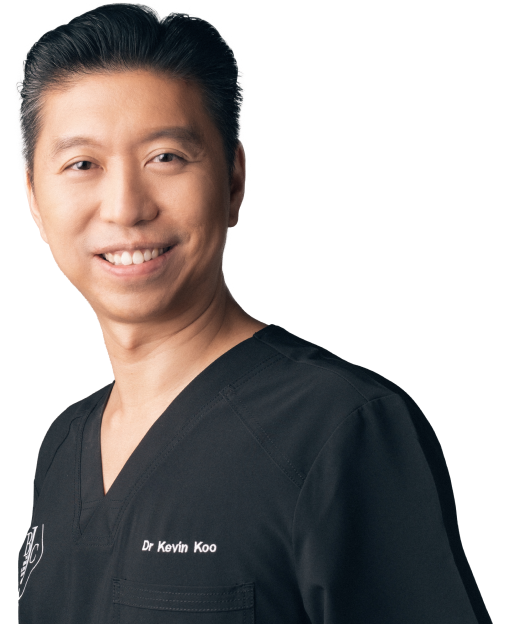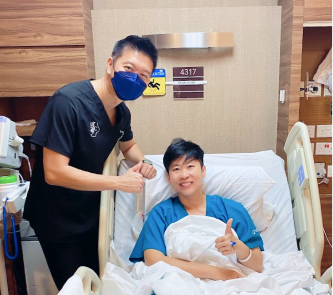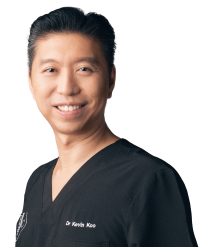Rotator Cuff Injury
The rotator cuff comprises of muscles and tendons in the shoulder joint that support stability and facilitate mobility. This helps maintain the proper position of the ball of the upper arm bone, known as the humerus, within the shoulder blade socket.
Four muscles are found in the rotator cuff, working together to help lift and rotate the arm and maintain shoulder joint integrity. These muscles are then connected to bones through fibrous bands known as tendons. These tendons surround the upper arm bone's head, forming a cuff-like structure that ensures the arm remains securely within the shoulder socket.
A rotator cuff injury is a condition in which one or more rotator cuff muscles or tendons are damaged or torn. It is a common cause of shoulder pain among older individuals and those engaged in occupations involving repetitive overhead movements.
The two main types of rotator cuff tears are as follows:
- Partial Tear - This occurs when damaged or frayed tendons do not completely sever.
- Complete Tear - Also known as a full-thickness tear, this occurs when the tendon detaches from the bone entirely and leads to a hole in the tendon.
The following are some common causes of rotator cuff injuries in Singapore:
- Overuse - Performing overhead motions or engaging in activities that place increased stress on the rotator cuff may result in strains and injuries. Overuse injuries may occur due to activities such as repeated throwing, heavy lifting, painting; or participating in sports that require repetitive shoulder movements, such as swimming, rowing, and tennis.
- Wear and Tear - As individuals age, the natural degenerative process can weaken the rotator cuff tendons over time. This weakening makes the tendons more susceptible to injury and tends to affect older adults.
- Acute Injury - Trauma to the shoulder from a sudden fall, direct blow, or lifting a heavy object with abrupt motion can cause an acute rotator cuff tear. Other injuries may also occur, including a fractured collarbone, dislocated shoulder, or broken wrist.
Although this may vary from person to person, common symptoms associated with rotator cuff injuries are:
- Recurrent shoulder pain and stiffness
- Pain that hinders sleeping on the affected side
- Grating or popping sensations during arm movement
- Inability to move the arm freely
- Muscle weakness in the injured shoulder
The orthopaedic doctor will review the patient's medical history and conduct a physical examination to examine the symptoms of pain, mobility, and arm strength. They may also perform imaging tests to detect the extent of the rotator cuff tear, including:
- X-Rays - This test is used to visualise bone spurs or identify other causes of shoulder pain, such as arthritis.
- MRI or Ultrasound - These tests provide precise images to examine soft tissues, including the rotator cuff tendon and the size and location of the tear.
Certain risk factors can increase the likelihood of developing a rotator cuff tear. These factors include:
- Age - The risk tends to rise with age due to natural wear and tear. This condition is particularly prevalent in individuals aged 40 and older.
- Occupation - Certain occupations involving repetitive overhead arm movements, such as carpentry or house painting, as well as sports activities like baseball or weightlifting, can subject the rotator cuff to prolonged stress and tendon injury.
- Genetics - In some families, rotator cuff tears appear to be more common.
If left untreated, a rotator cuff tear may result in complications. These include a restricted range of motion, muscle imbalance, shoulder instability, frozen shoulder (adhesive capsulitis), and weakened rotator cuff strength. Seeking prompt medical attention and undergoing rotator cuff repair in Singapore is crucial to minimising the risk of complications and speeding up one’s recovery.
When conservative treatment options do not yield sufficient relief, or the condition was too severe to begin with, a doctor may recommend surgical procedures for rotator cuff treatment, such as:
- Arthroscopic Tendon Repair - During this procedure, a rotator cuff surgeon inserts a tiny camera called an arthroscope through small incisions and uses specialised instruments to reconnect the torn tendon to the bone.
- Open Tendon Repair - For severe or complex tears, this procedure involves making a large incision to provide direct access to the rotator cuff in order to reattach the torn tendon and restore its strength and function.
- Tendon transfer - This treats a severely damaged rotator cuff that cannot be reattached to the arm bone. Instead, a nearby healthy tendon is transferred to the shoulder joint to restore function.
- Shoulder replacement - This is necessary for patients who sustain major rotator cuff injuries. It involves the installation of an artificial joint where the ball component is placed on the shoulder blade and the socket part on the arm bone to improve the artificial joint's stability.
Rotator cuff tears typically do not heal on their own, especially so for larger or fuller tears. Hence, it is important to seek immediate medical attention for accurate diagnosis and treatment to prevent potential further damage.
Rotator cuff pain is characterised as a persistent, dull ache in the shoulder region. Additionally, this can result in a sharp or burning sensation. If you are experiencing such symptoms, consult a doctor to receive appropriate rotator cuff treatment in Singapore.
Doctors may suggest patients with rotator cuff tears sleep on their backs to avoid placing additional pressure on the injured shoulder. You may opt to use a wedge pillow placed under your arm or a recliner.
The Bone & Joint Centre is an established rotator cuff treatment clinic in Singapore that provides comprehensive surgical and non-surgical procedures to help patients restore comfort and mobility in the shoulder, thereby improving their quality of life.
FRCSEd (Orth), FAMS
Dr Kevin Koo is a skilled shoulder surgeon with over 20 years of experience treating rotator cuff injuries. Dr Koo completed a fellowship at St. Mary's and Charing Cross Hospitals, Imperial College Healthcare in London, UK, where he worked with internationally recognised orthopaedic surgeons and treated professional athletes and dancers.
His practice interests include foot and ankle surgery, joint replacements, sports and minimally invasive surgery. He has presented extensively at international, regional as well as local conferences including the prestigious American Academy of Orthopaedic Surgeons (AAOS) as well as the British Society for Surgery of the Hand (BSSH) Annual Scientific Meetings.



| Tel. | : +65 6970 5905 |
| Fax | : +65 6970 5906 |
| Mobile | : +65 9898 7781 |
| : hello@bjc.sg, drkevinkoo@bjc.sg |
| Mon - FriMonday -Friday | : 8:30am to 5:30pm |
| Sat, Sun and PHSaturday, Sunday & PH | : Closed |
Well-being: Our Focus at
The Bone & Joint Centre.
We know that getting back to the activities you love is what truly matters. We are committed to providing high-quality, compassionate care to help you regain the ability to live life to the fullest.
Call us at 9898 7781 or fill out the form below and we will
get in touch as soon as possible.
| Tel. | : +65 6970 5905 |
| Fax | : +65 6970 5906 |
| Mobile | : +65 9898 7781 |
| : hello@bjc.sg, drkevinkoo@bjc.sg |
| Mon - FriMonday -Friday | : 8:30am to 5:30pm |
| Sat, Sun and PHSaturday, Sunday & PH | : Closed |





